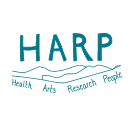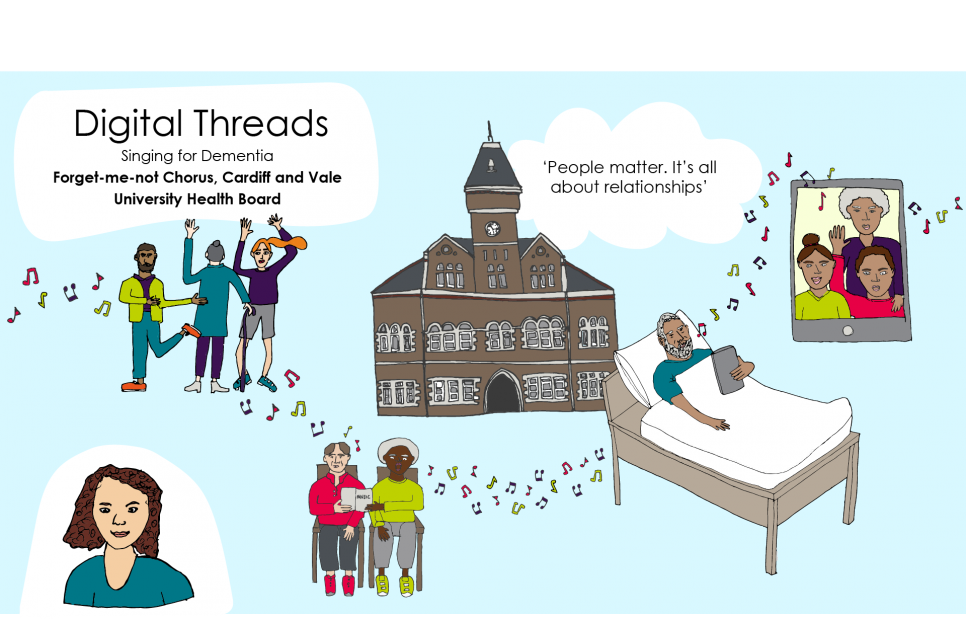Sarah Teagle of Forget-me-not Chorus reflects on the HARP project that brought music and discovery to Cardiff hospital patients with dementia
Music is an increasingly key feature of dementia care.
In Spring 2021, as research revealed people with dementia were being disproportionately affected by the pandemic, we launched Digital Threads – an online music and poetry programme aimed at keeping inpatients with dementia cognitively active and socially connected.
Across Wales, family and friends were unable to visit inpatients with dementia, and health care staff were overwhelmed.
Many people with the condition experienced symptoms worsening more quickly and connections with loved ones were being lost.
With that in mind, we tested a new approach to working at St David’s Hospital in Cardiff.
We used interactive singing and movement sessions to help inpatients with dementia tell their personal stories artistically, keeping them cognitively and physically active.
Making connections
We ran our first 10-week block of sessions on Zoom for 18 patients. They would sit on the ward with a Mental Health Matters staff member in front of a screen, and, from our homes, we would take small groups through a warm-up session before encouraging each to talk about themselves. This would lead us into song.
Our musicians and singers would lead the session remotely, incorporating simple physical movements to keep patients active within their limitations.
Artists and poets Louise Osborn and Emma Jenkins silently observed off-camera to create poetry inspired by the stories shared.
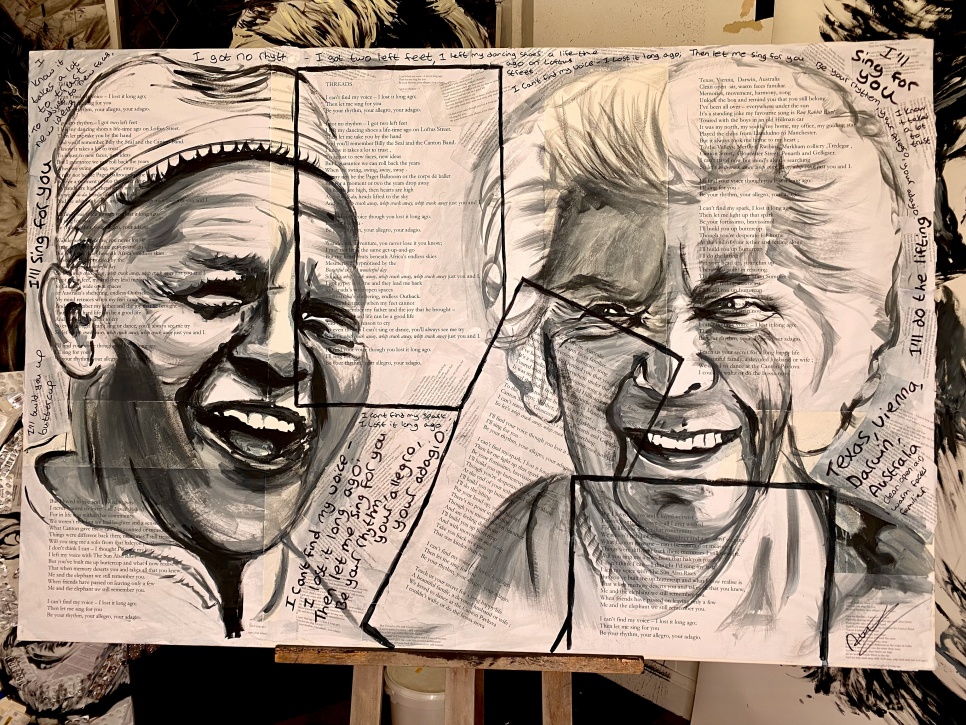
Early learnings
While Forget-me-not Chorus has been organising weekly singing sessions for people with dementia since 2011, running sessions remotely in a hospital setting during a pandemic provided a sharp learning curve.
From a practical perspective, the NHS is a huge machine so identifying key decision-makers at the start and securing their buy-in was crucial. There was an ‘integrated care lead’ at the hospital who made all the decisions about who could enter the ward, who could participate in the activity, and whether it was safe. Ensuring she understood and supported what we aimed to do - and how - was vital.
Having someone from Mental Health Matters present with the patients was also crucial. From a practical perspective, they helped with the technology and communication with patients. Most importantly, they were there if a patient was emotional or needed comfort.
Ordinarily, we would use what someone shares about their lives to shape the songs we feature in the next session. But people were often discharged before the next session could occur.
They also became disengaged when others in the group were speaking and it was difficult to involve medical practitioners in the sessions because they were too busy.
Family members joined but some found the technology challenging and their presence triggered strong emotional reactions from patients who hadn’t seen them for several months.
The isolating impact of the pandemic meant questions about patients’ lives sometimes prompted sadness as they spoke about loved ones they couldn’t be with.
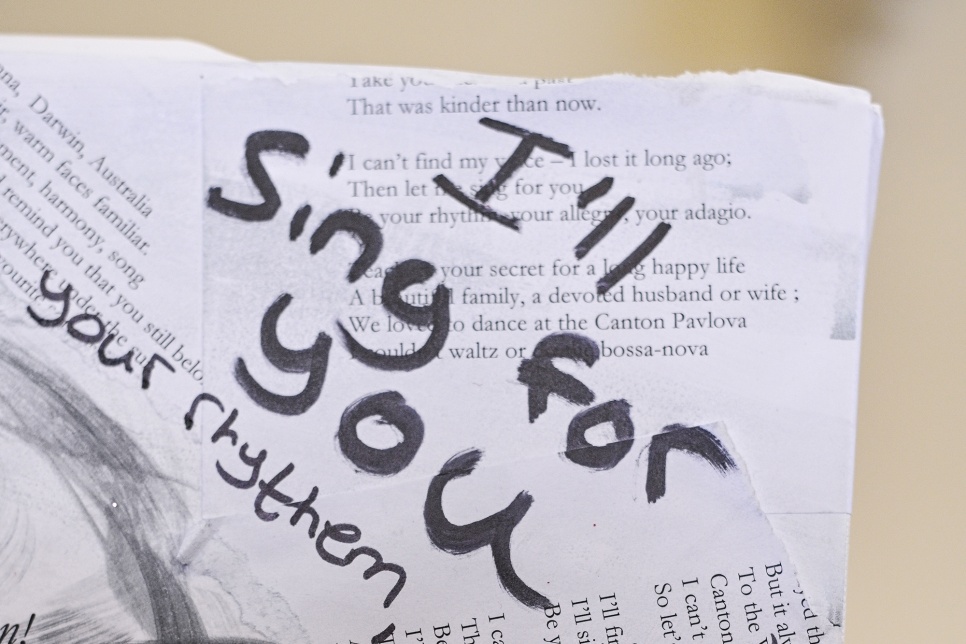
Adapting our approach
We tweaked our approach ahead of our second block of sessions, with these early learnings in mind.
While it’s not uncommon for sharing life stories to prompt an emotion, doing the sessions remotely required additional consideration – including how to sense mood changes and how best to respond to them.
We made the sessions shorter and more individual, with much smaller groups and shorter 1:1 sessions. Keen to ensure we did no harm, we used patients’ love of music as an engagement tool rather than exploring their personal history, choosing simple songs to learn together. And we reduced family involvement so patients could connect more directly to the music and facilitator.
In total, we worked with approximately 70 patients, favouring quality of experience over quantity, and have witnessed a positive impact on people.
One patient, a folk band singer, was initially sceptical and disengaged. However, he opened up after we played a song called ‘An elephant never forgets’.
We also worked with a man who spoke little English when we met. He didn’t respond to our sessions until we sang him a traditional folk song from his country. He sang along for the first time in his native tongue, which was a powerful moment of connection.
The poetry produced by the project has inspired artwork by renowned Welsh artist Nathan Wyburn. This and an audio reading of the poems by ‘It’s a Sin’ actor Callum Scott Howells can be found on our immersive website.
The artwork will also be displayed at the hospital for staff and visitors.
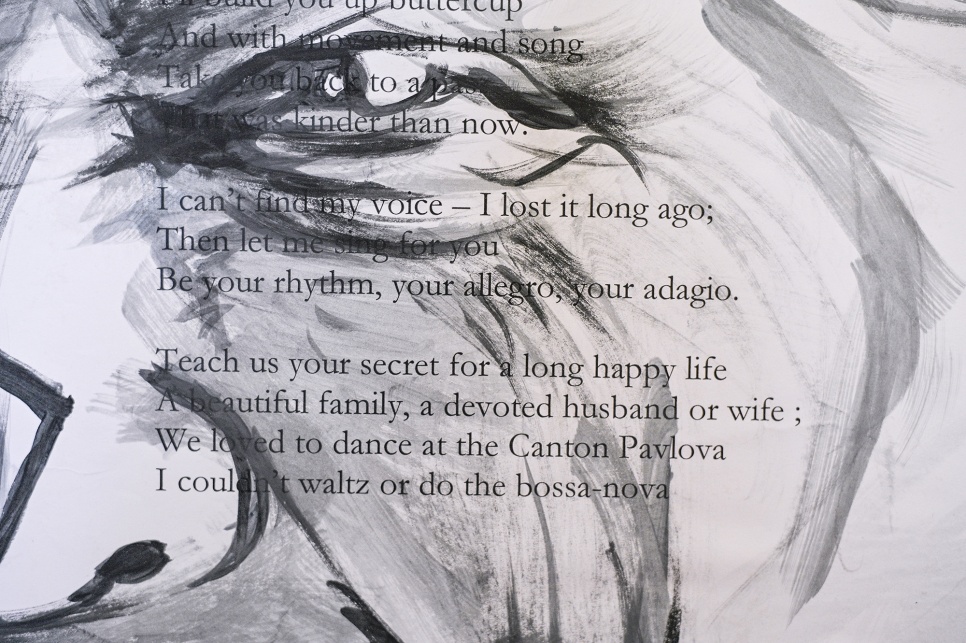
Looking to the future
Despite some challenges, the project reaffirmed how crucial our work is for people with dementia in hospitals.
It has moved them physically and emotionally and reconnected them socially during a worrying time.
We’d like to see this programme incorporated into a care package for patients preparing to leave hospital.
We will work with occupational therapists and physiotherapists to integrate more physical movement into our sessions to support people with dementia’s ability to drink and eat. We’ve applied for innovation funding to support this.
Finding sustainable funding remains a challenge. There are some great funders - Cardiff and Vale NHS Charity have been fantastic. We are also hoping to work with organisations like the Bevan Commission and other health boards, and to secure project-based funding.
We’ve learned that having a range of income sources helps with the sustainability and ‘scalability’ of our project. The pandemic saw a reduction in event-based income streams for charities and corporate donations also shrank. We accessed the furlough fund and Covid-19 recovery pots, but they won’t last forever.
We need funders to support existing work with a proven track record, as well as new ideas, and to be open to favouring quality over quantity as the HARP programme has done.
While we may not be able to change everybody’s experience, we have seen the value in making a life-changing impact on some.
Digital Threads was co-designed by Forget-me-not Chorus, Cardiff and Vale University Health Board, artists and poets Louise Osborn and Emma Jenkins, and Mental Health Matters, a national charity supporting people with mental health needs.
For more information, visit the Forget-me-not Chorus’ immersive website
